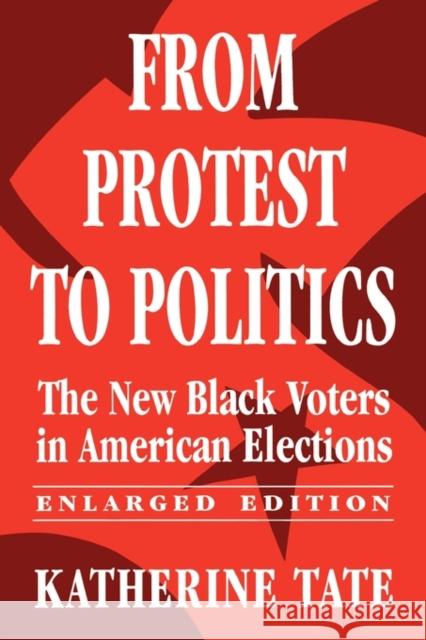From Protest to Politics: The New Black Voters in American Elections » książka
From Protest to Politics: The New Black Voters in American Elections
ISBN-13: 9780674325401 / Angielski / Miękka / 1998 / 238 str.
The struggle for civil rights among black Americans has moved into the voting booth. How such a shift came about--and what it means--is revealed in this timely reflection on black presidential politics in recent years.Since 1984, largely as a result of Jesse Jackson's presidential bid, blacks have been galvanized politically. Drawing on a substantial national survey of black voters, Katherine Tate shows how this process manifested itself at the polls in 1984 and 1988. In an analysis of the black presidential vote by region, income, age, and gender, she is able to identify unique aspects of the black experience as they shape political behavior, and to answer long-standing questions about that behavior. How, for instance, does the rise of conservatism among blacks influence their voting patterns? Is class more powerful than race in determining voting? And what is the value of the notion of a black political party?In the 1990s, Tate suggests, black organizations will continue to stress civil rights over economic development for one clear, compelling reason: Republican resistance to addressing black needs. In this, and in the friction engendered by affirmative action, she finds an explanation for the slackening of black voting. Tate does not, however, see blacks abandoning the political game. Instead, she predicts their continued search for leaders who prefer the ballot box to other kinds of protest, and for men and women who can deliver political programs of racial equality.Unique in its focus on the black electorate, this study illuminates a little understood and tremendously significant aspect of American politics. It will benefit those who wish to understand better the subtle interplay of race and politics, at the voting booth and beyond.











